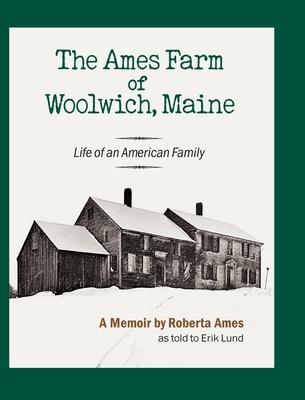The Ames Farm of Woolwich, Maine documents the life of a Maine dairy-farming family in the 1930s through '60s. The Ames family worked the same land in Woolwich, Maine since 1778 and Roberta Ames, the author of this memoir, is the last member of the family to have been born and raised on the farm. Although the family raised crops for themselves and for sale, their farm was primarily a dairy farm with a herd of twenty-five cows, calves, and heifers, which had to be tended to every day. The farm had no electricity, no running water, no ice other than what was harvested from the river, and the family's workday began every day, summer or winter, at 4:30 a.m. Despite the hardships, Roberta loved the farm and all the attributes of a subsistence farming family's life. It was a personal tragedy for her, as well as for her father and mother, when circumstances made it clear that they could no longer maintain the farm, and the farm had to pass out of the Ames family after nearly 200 years. A member of the sixth, and last, generation of the Ames family to own the farm, Roberta wrote this memoir, not for nostalgia's sake alone, but to document a vanished way of life before it is forgotten forever.

The Ames Farm of Woolwich, Maine: Life of an American Family
The Ames Farm of Woolwich, Maine documents the life of a Maine dairy-farming family in the 1930s through '60s. The Ames family worked the same land in Woolwich, Maine since 1778 and Roberta Ames, the author of this memoir, is the last member of the family to have been born and raised on the farm. Although the family raised crops for themselves and for sale, their farm was primarily a dairy farm with a herd of twenty-five cows, calves, and heifers, which had to be tended to every day. The farm had no electricity, no running water, no ice other than what was harvested from the river, and the family's workday began every day, summer or winter, at 4:30 a.m. Despite the hardships, Roberta loved the farm and all the attributes of a subsistence farming family's life. It was a personal tragedy for her, as well as for her father and mother, when circumstances made it clear that they could no longer maintain the farm, and the farm had to pass out of the Ames family after nearly 200 years. A member of the sixth, and last, generation of the Ames family to own the farm, Roberta wrote this memoir, not for nostalgia's sake alone, but to document a vanished way of life before it is forgotten forever.